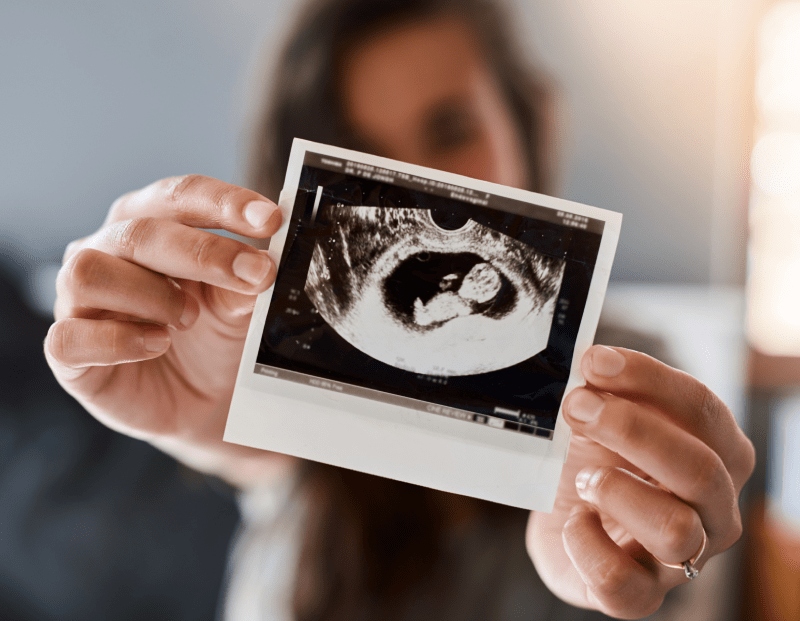What Are The First Steps To Get Pregnant?
The first steps you take when you decide to get pregnant lay the groundwork for a successful pregnancy. First, it’s important for both the man and woman to check their general health. During this process, it’s crucial to stay away from harmful habits, eat a balanced and healthy diet, exercise regularly, and reach an ideal weight. Furthermore, staying away from stress and maintaining a mental balance is one of the most important parts of this process. This preparation period helps your body get ready for pregnancy in the best possible way, increasing your chances of getting pregnant naturally.
Are There Any Nutritional Recommendations To Increase Fertility?
Foods that increase fertility can directly affect egg and sperm quality. Adopting a diet rich in antioxidants (fruits and vegetables), Omega-3 fatty acids (fish, walnuts, flaxseed), folic acid (green leafy vegetables), and zinc (nuts) supports reproductive health. Staying away from processed foods, excessive sugar, and trans fats helps maintain hormonal balance and reduces inflammation. Adequate and balanced nutrition ensures your body is ready for pregnancy and improves your overall health.
What Lifestyle Changes Affect Fertility?
Lifestyle has a major impact on fertility. Smoking and alcohol consumption seriously reduce both egg and sperm quality, so it is necessary to completely avoid these habits. Regular and light exercise increases blood circulation, allowing more oxygen to reach the reproductive organs. However, it is also important to avoid excessive exercise, as this can lead to hormonal imbalance. A healthy lifestyle can significantly increase your chances of getting pregnant.
What Is The Effect Of Stress On Getting Pregnant?
Stress can disrupt hormonal balance in the body, making it difficult to get pregnant. Stress hormones like cortisol can affect ovulation and negatively impact the reproductive system. Therefore, it is very important to stay away from stress when trying to get pregnant. Managing stress with methods like yoga, meditation, walking, and making time for hobbies helps protect both your physical and emotional health. You can plan a relaxing getaway with Cure Holiday to get through this process more comfortably.
When Should An Expert Be Consulted?
If you have been unable to get pregnant after one year of regular and unprotected intercourse, it is recommended to consult a specialist. If the woman is over 35, this period is reduced to six months. If there are conditions that increase the risk of infertility (irregular periods, previous surgeries, recurrent miscarriages, etc.), a specialist should be consulted without delay. Early diagnosis and treatment help determine the correct method and increase the chance of success.
How Are Fertility Problems Diagnosed?
The diagnosis of fertility problems is made with detailed tests for both men and women. For women, methods such as hormone tests, ultrasonography, and a hysterosalpingogram (HSG) are used. For men, a sperm analysis is performed to evaluate factors such as sperm count, motility, and morphology. These tests determine the source of the problem and allow the most suitable treatment plan to be created.
What Are The Basic Tests Done On Women?
The basic tests performed on women include blood tests (to measure hormone levels like FSH, LH, E2, AMH), vaginal ultrasonography (to check the condition of the ovaries and uterus), and a hysterosalpingogram (HSG). HSG shows whether the tubes are open and any possible problems with the internal structure of the uterus. These tests are of critical importance for evaluating ovarian reserve and the general health of the reproductive organs.
What Are The Basic Tests Done On Men?
The most basic test for diagnosing fertility problems in men is sperm analysis. In this test, sperm count, motility, and morphological abnormalities are evaluated. In addition to sperm analysis, blood tests can also be done to check hormonal levels. In necessary cases, advanced examinations like genetic tests or additional ultrasonography may also be requested. These tests help determine potential problems in men.
What Is The Importance Of Ultrasonography?
Ultrasonography is an indispensable tool in evaluating female fertility. This examination is used to determine the condition of the ovaries, the number of follicles (egg reserve), the shape of the uterus, and any structural abnormalities such as fibroids, cysts, or polyps. The growth and development of follicles are also monitored with ultrasound during ovulation tracking. Ultrasonography provides valuable information with a painless and fast method.
What Do Hormone Tests Do?
Hormone tests are a fundamental indicator of male and female reproductive health. For women, tests done on specific days of the menstrual cycle measure hormone levels like FSH, LH, E2, and AMH. These tests provide information about ovarian reserve, ovulation pattern, and hormonal balance. For men, testosterone and other hormone levels are checked to evaluate sperm production. Hormonal imbalances are a common cause of fertility problems.
How Are Ovulation Tracking And Drug Treatment Done?
Ovulation tracking aims to accurately determine the time of ovulation and time sexual intercourse or insemination accordingly. This tracking can be done with ultrasonography and blood tests. In women with ovulation problems, medication is administered orally or by injection to stimulate the ovaries. These drugs support egg development and help regulate ovulation.

What Is Insemination (IUI) Treatment?
Insemination (IUI) is a procedure in which the man’s best sperm, after a special process, are directly injected into the woman’s uterus at the time of ovulation. This method shortens the distance for sperm to reach the egg, increasing the chance of fertilization. Insemination is generally preferred as a first-line treatment for cases with mild low sperm count or motility, unexplained infertility, or women with only an ovulation problem.
What Are The Success Rates Of Insemination Treatment?
The success rate of insemination treatment varies depending on many factors. The woman’s age, the cause of infertility, sperm quality, and previous treatment history all affect success. In general, the success rate of insemination treatment ranges from 10% to 20% for each attempt. This rate can increase with repeated attempts. This treatment may be more suitable, especially for couples with simple fertility problems.
When Are Laparoscopy And Hysteroscopy Used?
Laparoscopy and hysteroscopy are surgical methods used for both diagnosis and treatment. Laparoscopy allows the outside structure of the tubes, ovaries, and uterus to be examined by making small incisions in the abdominal cavity. Hysteroscopy, on the other hand, allows the internal structure of the uterus to be checked and problems such as polyps, fibroids, or adhesions to be removed with a camera placed inside the uterus. These methods are used especially when structural problems are suspected.
How Is It Checked If The Fallopian Tubes Are Open?
Whether the fallopian tubes are open is most often checked with a hysterosalpingogram (HSG). In this procedure, a special fluid is injected through the cervix, and it is observed under X-ray whether the fluid passes through the tubes. Blocked tubes can prevent sperm from reaching the egg or a fertilized egg from implanting in the uterus. HSG is an important diagnostic test that should be done before starting IVF treatment.
What Is In Vitro Fertilization (IVF) Treatment?
In Vitro Fertilization (IVF) treatment is a reproductive method where the egg and sperm are brought together in a laboratory environment for fertilization, and the resulting embryo is placed in the mother’s uterus. This treatment is one of the most effective solutions for couples who cannot get pregnant naturally. It consists of stages such as ovarian stimulation with medication, egg retrieval, fertilization in the laboratory, and embryo transfer. Every step is meticulously followed in this process.
Who Is In Vitro Fertilization (IVF) Treatment Suitable For?
IVF treatment is a method resorted to in a wide variety of infertility cases. It is an ideal option for women with low ovarian reserve, those with blocked fallopian tubes, couples with severe male factor infertility, and couples who have failed in repeated insemination attempts. In addition, couples who are carriers of genetic diseases can also have a healthy baby by using genetic diagnosis methods with IVF.
What Are The Success Rates Of IVF Treatment?
The success rate of IVF treatment changes most depending on the woman’s age. While the success rates are higher in women under 35, this rate decreases in women aged 40 and over. Other factors affecting success include egg and sperm quality, the cause of infertility, and the treatment protocol applied. It should be noted that the best results in IVF treatment are obtained with personalized treatment plans.
How Long Does IVF Treatment Take?
The duration of IVF treatment, although it varies according to the protocol applied, is generally completed within 15 to 20 days. The treatment begins with ovarian stimulation, and this process takes about 10-12 days. This is followed by the egg retrieval procedure, fertilization in the laboratory, and the embryo transfer 3 to 5 days later. This process is completed meticulously and step-by-step.
Is Pain Felt During IVF Treatment?
The procedures in IVF treatment are generally painless or minimally painful. There may be a slight feeling of discomfort during ovarian stimulation. The egg retrieval procedure is done under anesthesia, so no pain is felt. The embryo transfer is generally a painless procedure. Painkillers recommended by professionals can be used to manage possible discomfort.
What Is The Importance Of Nutrition In IVF Treatment?
Nutrition in IVF treatment is of critical importance to increase the chances of success. A diet rich in healthy fats, whole grains, and plenty of fruits and vegetables, such as the Mediterranean diet, should be adopted. Staying away from sugary, processed, and trans-fatty foods protects hormonal balance and reduces inflammation. Adequate vitamin and mineral intake supports egg and sperm quality.
What Is The Embryo Freezing Process?
Embryo freezing is the process of specially freezing and storing healthy embryos obtained during IVF treatment that are not transferred, for future use. This method allows for a transfer without the need for a new treatment cycle if the first treatment is unsuccessful or when a second pregnancy is desired. Embryos can be stored for years at very low temperatures.
What Is PGT (Preimplantation Genetic Diagnosis)?
PGT is the process of examining embryos for genetic abnormalities before they are transferred to the mother’s uterus. With this method, healthy embryos can be selected for couples who are carriers of a genetic disease or are in an advanced age group. PGT increases the chance of pregnancy while reducing the risk of miscarriage and having a baby with a genetic disorder.
What Are The Causes Of Repeated IVF Failures?
There can be many reasons for repeated IVF failures. These include poor embryo quality, problems with the internal structure of the uterus, insufficient ovarian reserve, immune system problems, and genetic factors. In this case, a new treatment strategy is created after a detailed investigation after each unsuccessful attempt.
What Are The Treatment Options For Those With Low Ovarian Reserve?
The treatment options for women with low ovarian reserve are determined according to the person’s age and general health condition. In this case, different protocols may be applied to stimulate the ovaries more intensely. If necessary, nutritional supplements or lifestyle changes may be recommended to increase egg quality. The most suitable treatment plan should be created on a personal basis by experts.
Are There Treatment Methods For Low Sperm Count?
The treatment methods that can be applied for a low sperm count vary depending on the cause of the condition. If there are hormonal imbalances, drug treatment can be applied. If the sperm count is very low or there are no sperm at all, surgical methods such as testicular sperm extraction (TESE/TESE) can be used. IVF treatment is one of the most effective solutions for men with a low sperm count.
What Is The Cost Of Infertility Treatment?
The cost of infertility treatment varies greatly depending on the method applied, the medications used, and additional procedures (PGT, embryo freezing, etc.). The cost of IVF treatment is higher than that of insemination. In addition, the country where the treatment is performed is an important factor affecting the cost. For detailed information on this matter, you can contact Cure Holiday to get information about treatment packages.
What Are The Advantages Of Getting Treatment Abroad?
Getting IVF treatment abroad can have many advantages. Legal regulations may be more flexible in some countries, while costs may be more affordable. In addition, centers with advanced technology and specialists in their field can also be found abroad. This can provide easier access to treatment and higher success rates.

How Should Pregnancy Psychology Be Managed?
The process of getting pregnant can be a journey full of both hope and stress. It is normal to experience emotional fluctuations during this period. Getting psychological support, having open communication with your partner, and joining support groups are beneficial for managing stress. It is very important to take good care of yourself, make time for your hobbies, and try to stay positive during this process.
Is Intercourse Forbidden During The Treatment Process?
During the IVF or insemination treatment process, sexual intercourse may be restricted during certain stages of the treatment. Especially after the egg retrieval procedure, intercourse is not recommended due to the sensitivity of the ovaries. It is also recommended to take a break from intercourse for a while after the embryo transfer. Detailed guidance on this matter will be given to you by the expert conducting the treatment.
When Can I Return To Work After IVF Treatment?
The time to return to work after IVF treatment depends on the procedures performed and the person’s physical condition. Resting for a day or two after the egg retrieval procedure may be sufficient. After the embryo transfer, you can return to your normal life within a few days, avoiding heavy work and strenuous activities.
Are Acupuncture And Alternative Medicine Methods Beneficial?
Some alternative medicine methods such as acupuncture are thought to support fertility by reducing stress and increasing blood circulation. However, there is no definitive scientific evidence that these methods alone help in getting pregnant. It is important to consult with the professionals conducting the treatment before using such methods.
How Should Caffeine And Alcohol Consumption Be?
Caffeine and alcohol have negative effects on fertility. Excessive caffeine consumption can reduce the chance of pregnancy and increase the risk of miscarriage. Alcohol, on the other hand, negatively affects both egg and sperm quality. When trying to get pregnant and during the treatment process, it is best to limit caffeine consumption to 200 mg per day and to completely stay away from alcohol.
Does Exercising Increase Fertility?
Doing regular and light exercise increases fertility by increasing blood circulation. Activities such as walking, swimming, and yoga help reduce stress and improve general health. However, overly strenuous exercises can lead to hormonal imbalance, so it is important to adopt a balanced exercise routine.
What Is The Importance Of Partner Support In IVF Treatment?
IVF treatment can be a difficult process for couples. During this period, the support of the partner is one of the most important success factors. Supporting each other both emotionally and physically, going to appointments together, and sharing the process reduces stress and strengthens the couple’s bond. Acting together on this special journey increases the belief in the treatment.
What Should Be Done After An Unsuccessful Treatment?
An unsuccessful treatment can be a disappointment for couples. However, this is not a reason to lose hope. The reasons for the failure should be investigated in detail, and a new strategy should be determined for the next attempt. It is very important to get psychological support and rest during this process. You can plan a getaway with Cure Holiday to get through this special period.



